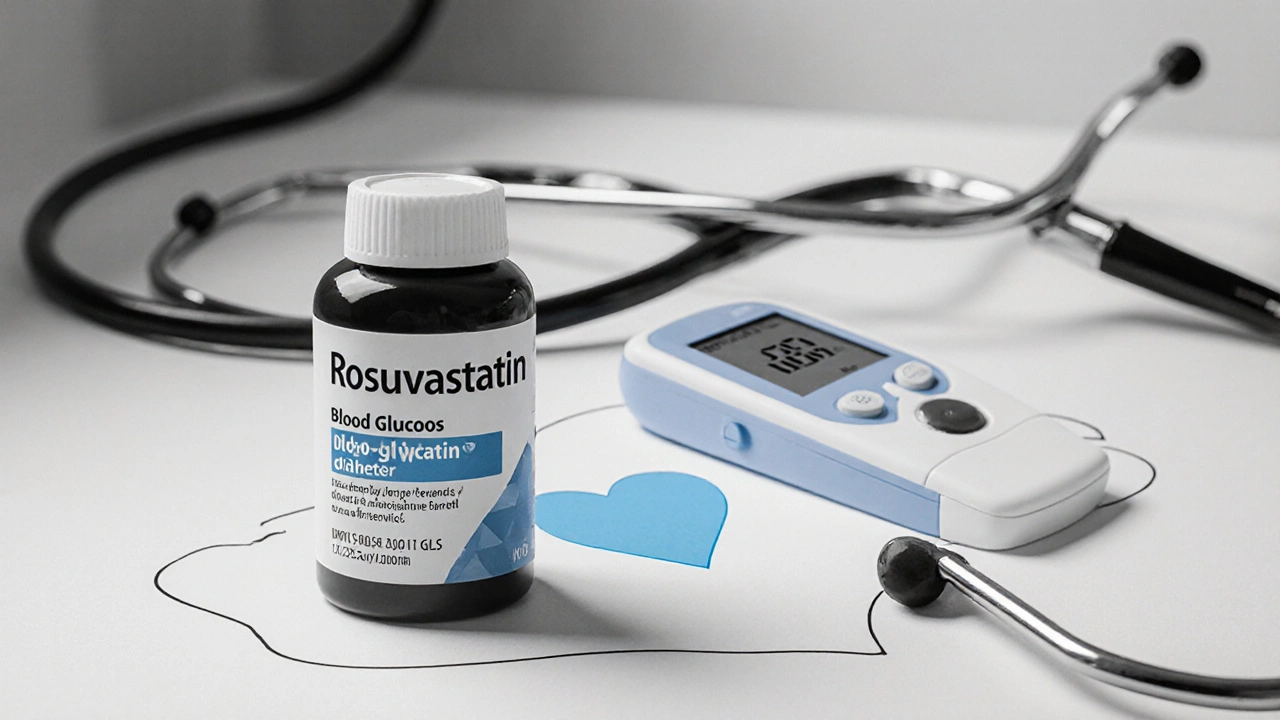Rosuvastatin and Diabetes: Essential Facts You Need to Know
Learn how rosuvastatin interacts with diabetes, its impact on blood sugar, and practical tips to stay safe while reducing heart risk.
Continue ReadingWhen your doctor talks about statins, a class of medications used to lower LDL cholesterol and reduce the risk of heart attack and stroke. Also known as HMG-CoA reductase inhibitors, they’re among the most prescribed drugs in the world because they work — and they’ve been proven in millions of patients over decades. If you’ve been told your cholesterol is high, statins are likely the first line of defense. But they’re not magic pills. They don’t fix your diet, your movement, or your sleep. What they do is block an enzyme your liver uses to make cholesterol, which tells your body to pull more LDL out of your blood. That’s it. Simple. Powerful.
Not all statins are the same. atorvastatin, a long-acting statin often sold as Lipitor or its generic version, works for 24 hours and is common for people who need strong, steady control. simvastatin, a shorter-acting option often used for moderate cholesterol levels, is cheaper and effective, but it can interact with grapefruit juice and some antibiotics. Then there’s rosuvastatin, pravastatin, and others — each with different strengths, side effect profiles, and how they’re cleared from your body. You don’t just pick one randomly. Your doctor picks based on your liver function, other meds, and how high your numbers are.
Side effects? Muscle pain is the big one — not everyone gets it, but if you feel new aches or weakness, tell your doctor. Liver tests are checked early on, but serious damage is rare. Some people worry about diabetes risk — yes, a small increase has been seen in studies, but the heart protection far outweighs that risk for most. And no, statins don’t cause dementia or memory loss in healthy people. That myth came from a few isolated reports, not real evidence.
What you’ll find below are real, no-fluff posts about statins and related topics. You’ll see how they compare to other cholesterol drugs, what to do if you can’t tolerate them, how they interact with other meds like antibiotics or supplements, and what the science actually says about long-term use. There’s also advice on managing muscle pain, understanding blood tests, and when it’s okay to try going off them — all based on real patient experiences and clinical data. No marketing. No hype. Just what you need to know to make smart choices with your doctor.

Learn how rosuvastatin interacts with diabetes, its impact on blood sugar, and practical tips to stay safe while reducing heart risk.
Continue Reading